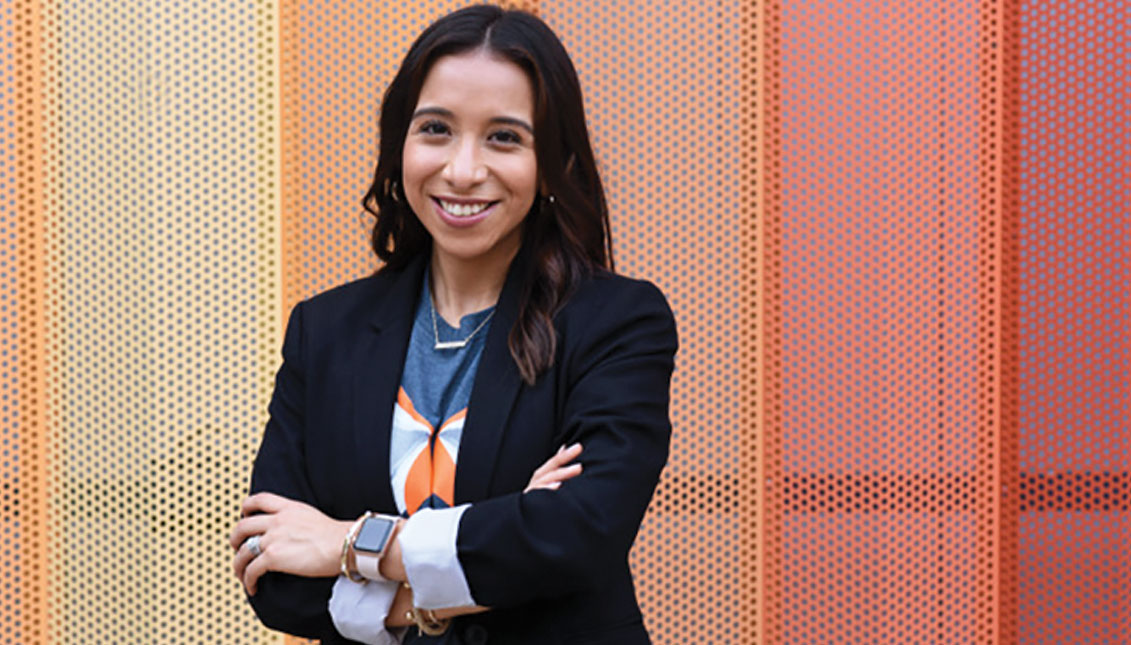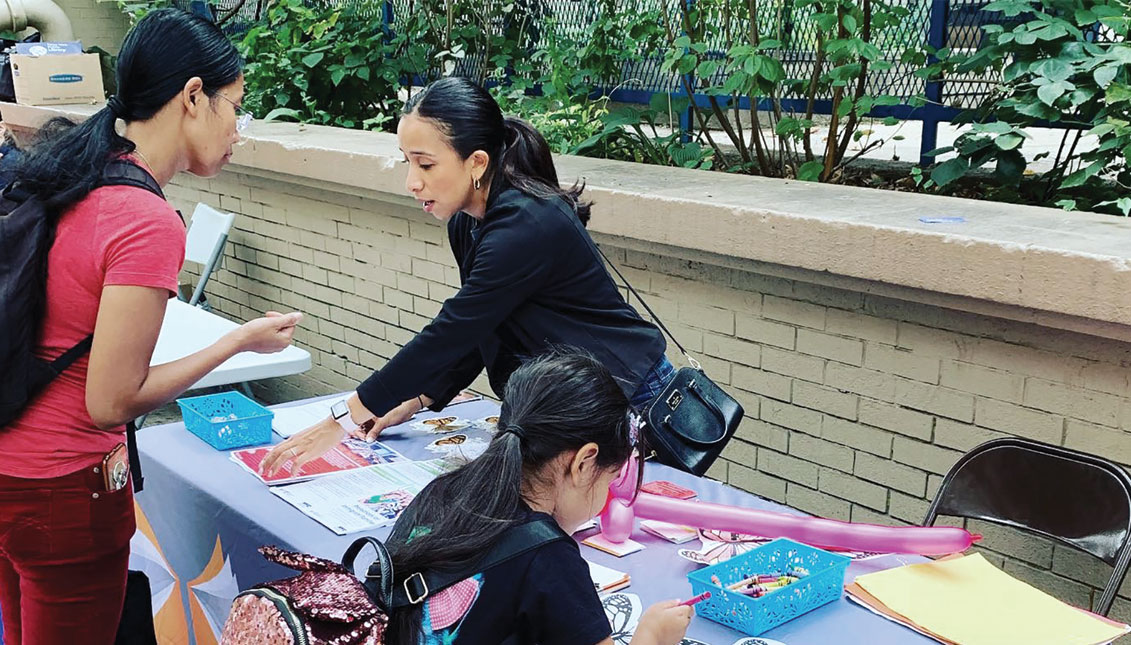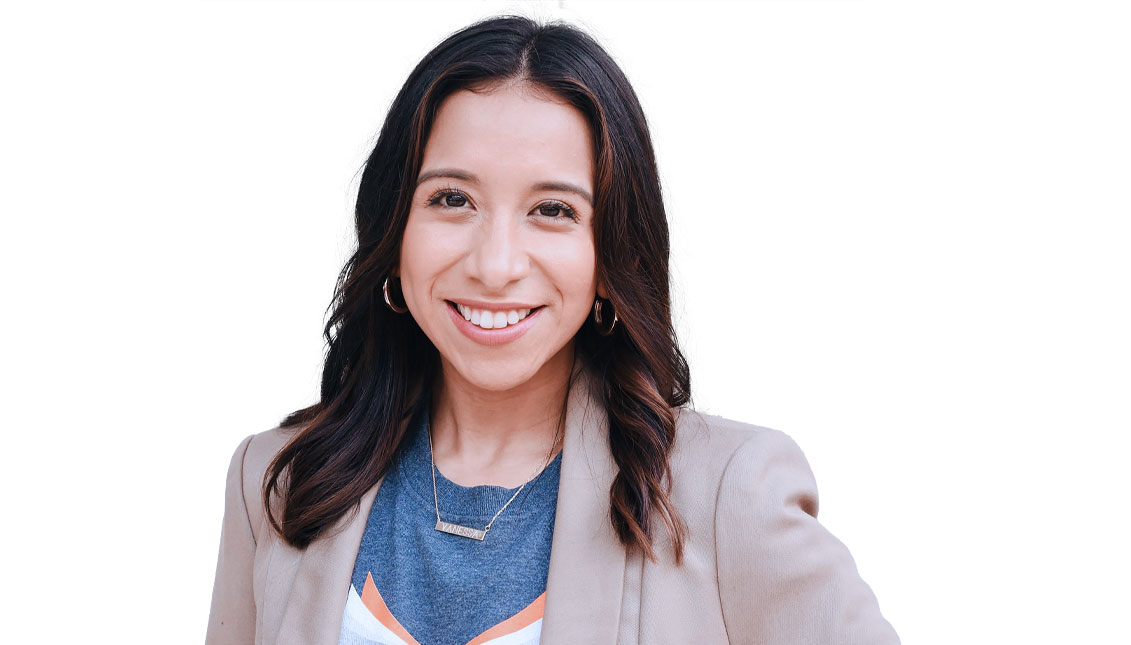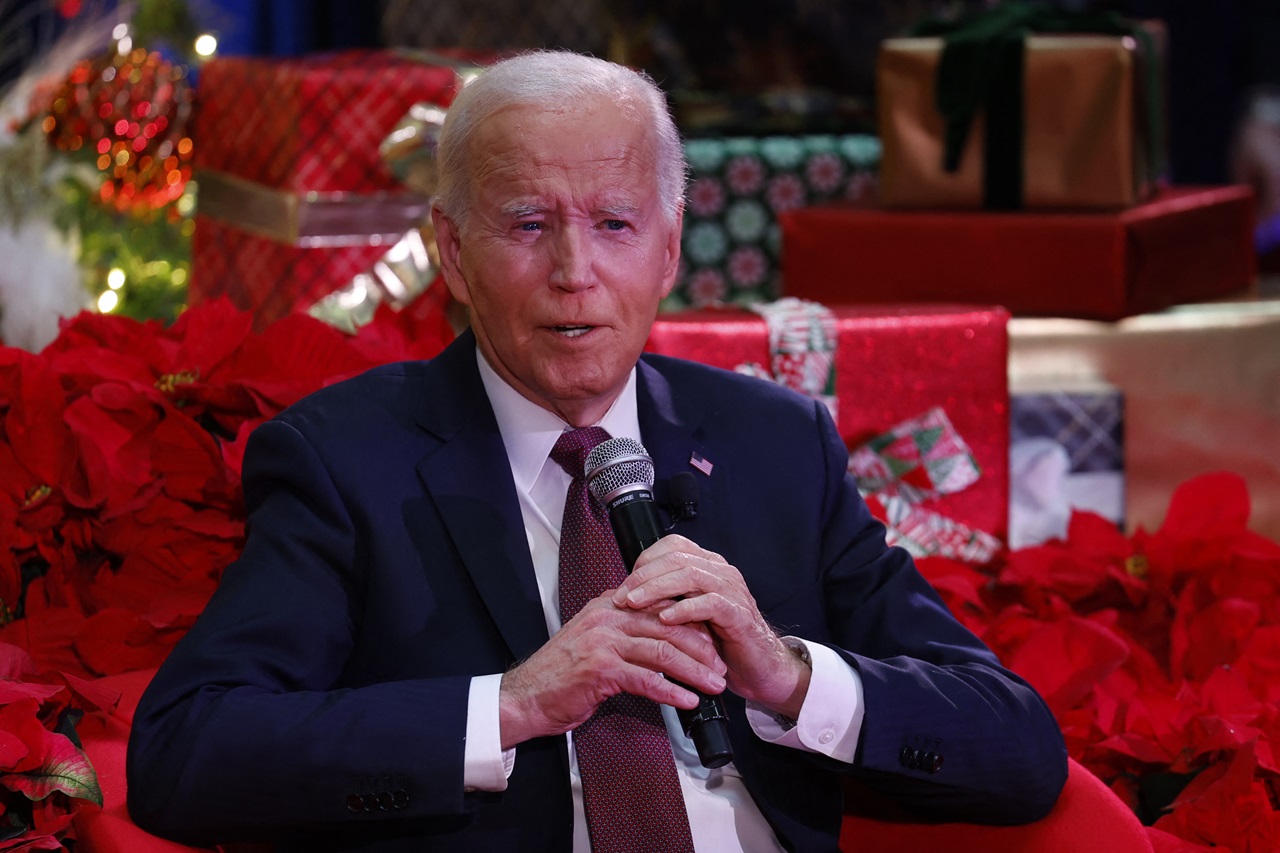
Vanessa Luna: the 'Super Dreamer' who hopes for a country where your race doesn't determine your freedom
Vanessa Luna, Co-Founder and Chief Program Officer at ImmSchools spoke exclusively to AL DÍA about her commitment to her undocumented community.
A largely uncovered aspect of this pandemic has been the way it has affected our immigrant families as they try to resist lockdowns, job losses, and COVID–19 itself, given the Latino and Black communities have been disproportionately affected by the disease.
To have a better insight about this, we talked to Vanessa Luna, the Co-Founder and Chief Program Officer at ImmSchools, a nonprofit organization that guides schools, teachers, students and families on how to offer a better education to immigrant and undocumented children and teenagers by understanding their circumstances, cultures, and specific needs.
ImmSchools conducts work in San Antonio, Dallas, and New York City

When asked about the impact the pandemic has had on school communities, Luna says it has amplified all the existing challenges, especially as an immigrant community.
“Before we reacted,” she recalled, “we connected with 45 of our families and asked them what they needed. And they needed financial support. Because here in the United States immigrant families, especially if they are undocumented, are not able to get Federal financial assistance.
“And in the cities, we are at, right now there are no large initiatives to support undocumented families. So that was the first thing we did. We paused everything and we provided stipends for 45 families across three regions [San Antonio, Dallas, and New York City]: that’s covering their rent, utilities, their basic needs. Because they had all been laid off.”
In terms of education, Luna explained how her organization has focused its efforts on developing virtual programs.
“Instead of the workshops that we do with families, now we are connecting folks via WhatsApp. The families are just engaging constantly, we are sharing resources, connecting via video, or recording ourselves sharing resources and updates and we are working with the districts.”
Similarly, they have established links with the city in New York to expand the range of their programs, including professional development programs that have been admittedly challenging to transform virtually.
“Some of our families don’t have computers, so they had to get them from the District, but that is the whole process that assumes that our families are able to get on a phone or a laptop, so we had to walk all of them through that and make sure they know how to do that,” said Luna
Between translation services, and the titanic job of ensuring direct and flat communication with the immigrant and undocumented community, Luna said the biggest obstacle has been meeting basic needs and calming families' fears of becoming homeless.
“They are not getting any help from anyone. And the help they are getting is falling on organizations and nonprofits, rather than the state or the federal government,” she said.
“I don’t think the federal government is going to help the immigrant community. That is just not going to happen. They have criminalized and dehumanized our community.”
Despite the circumstances, Luna was emphatic about the resilience of the community, how families "manage to find moments of joy" and care for each other.
“They say to me ‘Hey, Vanessa. Are you taking care of yourself? When you go outside make sure you have a mask… we’re going to have a get-together and we are going to cook,’ and I think that is really beautiful,” said Luna.
Even so, instability in the face of the scope or evolution of the pandemic is still present. Many of the communities Luna works with do not know exactly when their workplaces will reopen - especially restaurants and other service industries where immigrant and undocumented labor is critical.
“They are still responsible for their rents and the bills are piling up,” she said.

“Even as they are essential workers, states don’t prioritize them,” Luna explained. “Here in New York many of them are farmers. So, they are essential workers, they have been working all throughout this pandemic and now we are going to tell them ‘No, we don’t care.’ That is what I believe is happening: we don’t prioritize them as much as they need to be prioritized.”
She then reflected on the failure of the American capitalist system where "we value property and profits oftentimes so much more than individuals.”
“Especially individuals that have contributed so much but, also, in order for us to be okay in regards to COVID, we need to have our immigrant community to be okay too. We need to make sure we take care of everybody,” she added.
This is particularly true when, as the economy begins to reopen, the circumstances of so-called "essential workers" remain on the front line of the battle - both in the fields, in hospitals, supermarkets, and beyond.
RELATED CONTENT
For Luna, it's a human rights issue.
“Now it is up to the government and local, especially local and state entities, [who] are going to have to step up [and] say [immigrants] are a priority and provide them the essential human rights they deserve,” she said.
“It daunts my mind how that is difficult to understand.”
Luna has witnessed first-hand the many obstacles that immigrant children and youth face in accessing education.
While their white, documented peers may only have to worry about doing their homework, immigrant and undocumented children are sometimes the breadwinners for their families, and the direct link to the system and must translate for their parents.
“There are all these things you are usually able to walk away from when you go to school, that now are present while they are trying to learn,” she explained. “I grew up also in a dynamic of a one-bedroom apartment and I understand. I have told them it is okay; we are all doing our best. But they have felt really overwhelmed.”
As for the parents, the challenge is different. From language barriers to the standardization of technology, organizations like ImmSchools must address battles on many fronts, especially when a lot of people are dying every day.
“Those are challenges that were on the margins, that our system had not been serving and are now being impacted even at a higher scale,” she added.
In the midst of the social movement triggered by George Floyd's death, the issue of racism and the commitment of the Latino community to the struggle of African Americans in the United States is more important than ever, for, in the eyes of white supremacy, our destinies are intertwined.
“We believe in liberation,” Luna said confidently. “The work that we do is meant to work towards liberation. What I mean by that is that the power of us as individuals to live, to be free, to be happy, regardless of our race, regardless of our immigration status is tied together: I can’t be free until all of us are free.”
“If our brothers and sisters who are black are not free, then I am not free. Because all these systems are interconnected. Our liberation is tied together, so we have to stand in solidarity and check ourselves honestly and have difficult conversations with family members,” she added.
This is especially true in the Latinx community, where colorism is approached differently, and where racism is a normalized issue because of colonial residues in the collective unconscious.
“You have to be actively working towards [eliminating racism] every single day and we have a responsibility to do that in order to stand in solidarity with our black folks.”
“So, we have to understand that these issues are interconnected,” Luna concluded. “For undocumented Black people that might mean they are more likely to be deported than someone like me. Because of their interactions with police and the criminality that is put upon them based on their race.”
“It is not just a Latino issue it is an issue about all of us and it is deeply interconnected.”











LEAVE A COMMENT:
Join the discussion! Leave a comment.